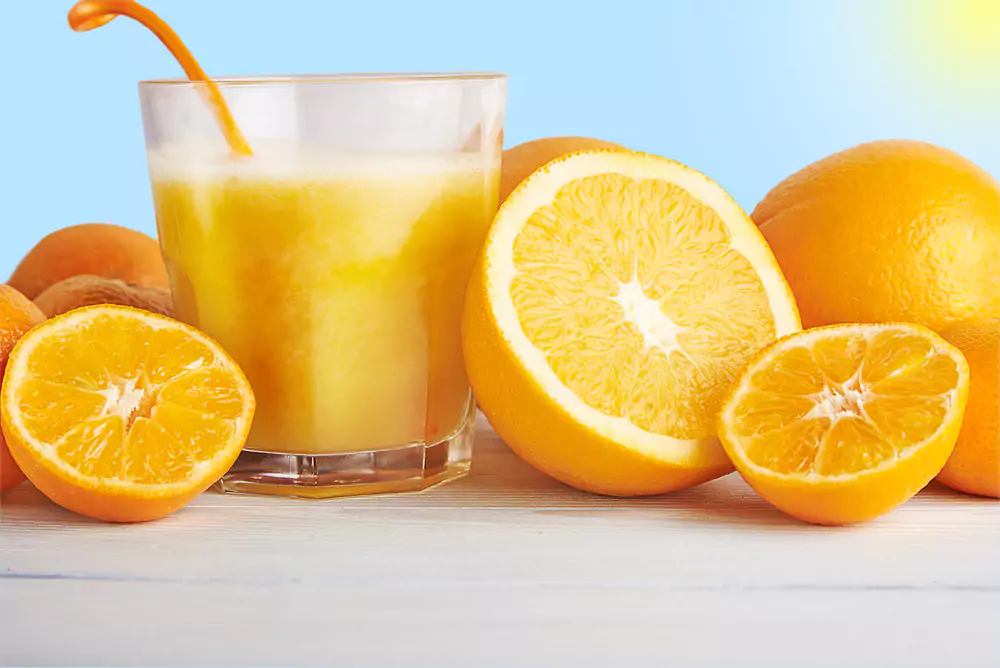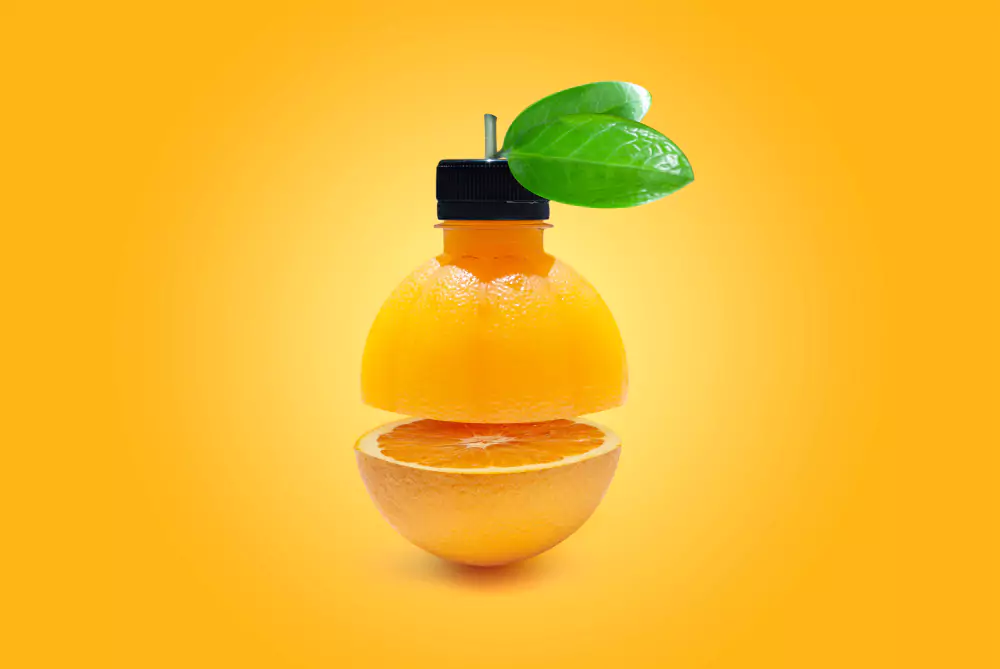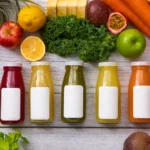When it comes to enhancing the taste and versatility of various beverages and food products, one ingredient that often takes center stage is juice concentrate. But what is juice concentrate, and how does it differ from regular juice?
In this comprehensive blog post, we’ll unravel the mysteries behind juice concentrate, exploring its production, uses, nutritional value, and much more to help you better understand this flavorful and practical ingredient. So, let’s dive right in to discover the world of juice concentrate!
What Is Juice Concentrate?
Juice concentrate is a highly concentrated form of juice obtained by removing most of the water content from the original juice. This process involves extracting the liquid essence and flavor from fruits or vegetables, leaving a potent and thick syrup behind. Juice concentrate is a versatile ingredient widely used in the food and beverage industry to add natural flavors and sweetness to a wide range of products, from juices and soft drinks to baked goods and sauces. It offers convenience, extended shelf life, and the ability to efficiently transport and store fruit and vegetable flavors.
How Juice Concentrate Is Made?
Juice concentrate is made by removing the water content from freshly squeezed juice. First, the juice is extracted from fruits or vegetables, typically by mechanical pressing or crushing. Then, the liquid is subjected to a gentle heating process to evaporate a significant portion of its water content, leaving behind a concentrated syrup.
This syrup can be further processed, often with filtration and pasteurization, to ensure stability and preservation. The result is a concentrated product that retains the natural flavors and sugars of the original juice, making it a valuable ingredient in various food and beverage applications.
Types Of Juice Concentrates

Several types of juice concentrates are available in the market, each with unique characteristics and benefits. Here are some of the most common types of juice concentrates:
Orange Juice Concentrate
Orange juice concentrate is one of the most widely consumed, made from the juice of oranges that have been concentrated through evaporation or freeze-drying. Orange juice concentrate is a good source of vitamin C, potassium, and other essential nutrients. It can be used as a base for other juices or consumed on its own.
Apple Juice Concentrate
Apple juice concentrate is another popular type of juice concentrate, made from the juice of apples that have been concentrated through a similar process as orange juice. Apple juice concentrate is a good source of antioxidants, vitamins, and minerals and is often used as a base for other juices or as a mixer for cocktails.
Grape Juice Concentrate
Grape juice concentrate is made from the juice of grapes that have been concentrated through evaporation or freeze-drying. Grape juice concentrate is a good source of antioxidants, vitamins, and minerals and is often used as a base for other juices or as a mixer for cocktails.
Mango Juice Concentrate
Mango juice concentrate is a sweet and tangy concentrate made from the juice of mangoes that has been concentrated through evaporation or freeze-drying. Mango juice concentrate is a good source of vitamins, minerals, and antioxidants and is often used as a base for other juices or as a mixer for cocktails.
Tomato Juice Concentrate
Tomato juice concentrate is a savory and tangy concentrate made from the juice of tomatoes that has been concentrated through evaporation or freeze-drying. Tomato juice concentrate is a good source of vitamins, minerals, and lycopene, an antioxidant believed to have several health benefits.
Advantages Of Using Juice Concentrate

Using juice concentrate can offer several advantages for individuals and businesses alike. Here are some of the key benefits of using juice concentrate:
- Juice concentrate has a longer shelf life than fresh juice, allowing for more accessible storage and transportation.
- Juice concentrate is more affordable than fresh juice, making it a cost-effective option for consumers and businesses.
- Juice concentrate can be used in various applications such as beverages, desserts, sauces, and marinades, providing versatility in culinary creations.
- Juice concentrate eliminates the need for juicing fruits or vegetables, saving time and effort in food preparation.
- Juice concentrate offers consistent flavor profiles, ensuring that each batch of products maintains the same taste.
- Juice concentrate retains most vitamins and minerals in fresh juice, providing a convenient way to consume essential nutrients.
- By using juice concentrate, there is less waste generated from spoiled or unused fresh fruits and vegetables.
Shelf Life Of Juice Concentrate
The shelf life of juice concentrate is notably extended compared to fresh juice due to its reduced water content, which inhibits the growth of microorganisms and enzymatic reactions. When stored in appropriate conditions, such as a cool and dark place or in a freezer, unopened juice concentrate can remain viable for an extended period, ranging from several months to a year or more.
Once opened, the shelf life may be shorter, requiring refrigeration and consumption within a reasonable timeframe to maintain quality and safety. Proper storage and handling practices are crucial to preserving the shelf life of juice concentrate.
Nutritional Value Of Juice Concentrate
| Nutrient | Amount per 100g |
| Calories | 288 |
| Carbohydrates | 70.6g |
| Sugars | 66.2g |
| Protein | 0.4g |
| Fat | 0.1g |
| Fiber | 0.3g |
| Vitamin C | 0mg |
| Calcium | 7mg |
| Iron | 0.3mg |
Common Applications Of Juice Concentrate In The Food And Beverage Industry
Juice concentrate is a highly versatile ingredient widely used in the food and beverage industry for various applications. Some of the most common applications of juice concentrate include:
- Juice concentrate is a base for beverages such as juices, smoothies, and drinks. It can be mixed with water, juices, or other ingredients to create various flavors and combinations.
- Juice concentrate can be used as an ingredient in baked goods such as cakes, cookies, and muffins, as well as in savory dishes like sauces, marinades, and glazes.
- Juice concentrate can be used to create plant-based dairy alternatives like almond milk, soy milk, and coconut milk.
- Juice concentrate can create unique and delicious flavors of ice cream and other frozen desserts.
- Juice concentrate can be used as an ingredient in snack bars, trail mixes, and other snack products.
- Juice concentrate can create nutrient-rich beverages and bars for athletes and fitness enthusiasts.
Differences Between Juice Concentrate And Fresh Juice
The primary differences between juice concentrate and fresh juice lie in their water content and processing methods. Juice concentrate removes most of the water from freshly squeezed juice, resulting in a highly concentrated syrup with a longer shelf life.
In contrast, fresh juice retains its natural water content and is typically made by pressing or extracting juice from fruits or vegetables without significant alterations. While fresh juice offers a more immediate and authentic flavor profile, juice concentrate provides convenience, extended storage, and the ability to efficiently transport fruit and vegetable flavors, albeit with a slightly different taste due to the concentration process.
Potential Drawbacks Of Using Juice Concentrate
While juice concentrate can be a convenient and cost-effective way to enjoy fresh-tasting juice at home, there are some potential drawbacks to consider:
- Juice concentrates may contain less fiber and nutrients than fresh juice, as concentrating the juice can remove some of these beneficial compounds.
- Many juice concentrates can be high in sugar, which can concern those watching their sugar intake or having dietary restrictions.
- Some juice concentrates may contain preservatives or additives, such as artificial flavors or colors, which can harm health.
- Juice concentrates can have a limited shelf life and may spoil or become rancid if not stored properly.
- Juice concentrates can be more expensive than fresh juice, especially if you purchase them in small quantities.
Conclusion
In conclusion, juice concentrate is a versatile and valuable ingredient that plays a significant role in the food and beverage industry. It offers the convenience of extended shelf life and efficient flavor transport while preserving the essence of fruits and vegetables.
While it may differ in taste from fresh juice, its versatility and ability to enhance a wide range of products make it a popular choice for manufacturers and consumers. By understanding what juice concentrate is and its various applications, we can better appreciate its role in our daily consumption of flavorful and enjoyable foods and beverages.
FAQs
Is Juice Concentrate Real Juice?
Juice concentrate is made from real juice but with most of its water content removed, resulting in a concentrated form.
Is Juice Concentrate 100% Juice?
Juice concentrate is not typically 100% juice as it contains a higher concentration of the natural juice but is not pure juice.
What Is The Difference Between Juice And Juice Concentrate?
The critical difference between juice and juice concentrate is the water content; juice is not as concentrated as juice concentrate.
Is Concentrated Juice Bad?
Concentrated juice isn’t necessarily bad, but it may lose some nutrients during processing due to water removal.
Does Juice From Concentrate Have Added Sugar?
Juice from concentrate may have added sugars, depending on the product, so checking the label for ingredients is essential.



![5 Best Ways for Juice Storage - [ Store Fruits & Vegetables Juice ] Juice Storage](https://juicerhunter.com/wp-content/uploads/2024/01/Juice-Storage-150x150.webp)


